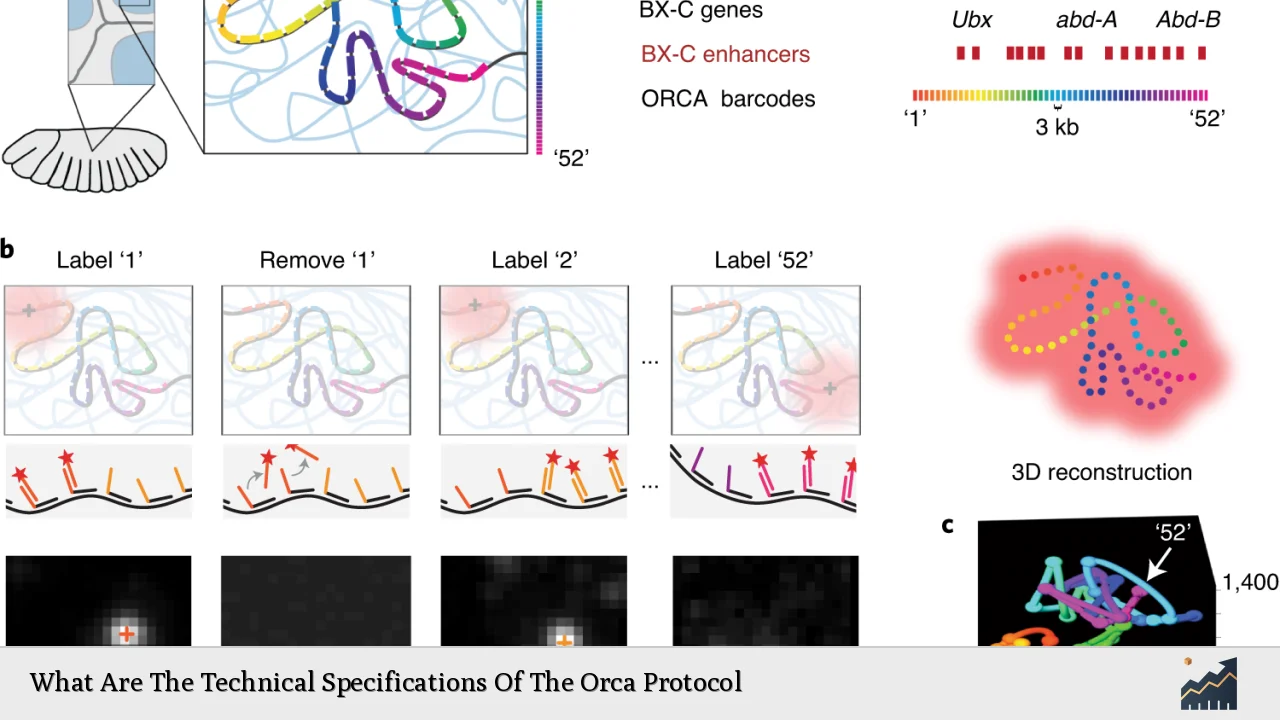Orca is a decentralized exchange (DEX) built on the Solana blockchain, known for its user-friendly interface and efficient trading capabilities. It employs an Automated Market Maker (AMM) model, allowing users to swap assets, provide liquidity, and earn yield. This article delves into the technical specifications of the Orca protocol, covering its architecture, features, market trends, implementation strategies, risk considerations, regulatory aspects, and future outlook.
| Key Concept | Description/Impact |
|---|---|
| Blockchain Integration | Built on Solana, Orca benefits from high throughput and low transaction costs, enabling rapid trading and liquidity provision. |
| Automated Market Maker (AMM) | Utilizes liquidity pools to facilitate trades without a traditional order book, ensuring efficient price discovery. |
| Concentrated Liquidity Pools | Liquidity providers can concentrate their assets within specific price ranges to enhance capital efficiency and maximize returns. |
| User Experience | Intuitive interface designed for both novice and experienced traders, featuring real-time updates and minimal transaction fees. |
| Tokenomics | The ORCA token is used for governance and incentivizing liquidity provision through yield farming mechanisms. |
| Governance Model | Decentralized decision-making allows token holders to propose and vote on changes to the protocol. |
| Market Performance | As of December 2024, ORCA’s market capitalization is approximately $96.61 million with a circulating supply of 52.55 million tokens. |
Market Analysis and Trends
The decentralized finance (DeFi) landscape has been rapidly evolving, with Orca emerging as a prominent player due to its unique features. The integration with Solana allows Orca to handle thousands of transactions per second at minimal costs. This capability positions it favorably against competitors like Uniswap and SushiSwap on Ethereum.
Current Market Statistics
- Current Price: $1.84
- Market Capitalization: $96.61 million
- 24-hour Trading Volume: $1.12 million
- All-Time High (ATH): $21.67 (October 2021)
- Circulating Supply: 52.55 million ORCA tokens
- Max Supply: 100 million ORCA tokens
The market sentiment around Orca remains cautiously optimistic as it continues to attract users seeking efficient trading solutions in the DeFi space.
Implementation Strategies
For individual investors and liquidity providers looking to engage with the Orca protocol, several strategies can enhance their experience:
- Liquidity Provisioning: Users can provide liquidity to specific pools within defined price ranges using the Whirlpools feature. This concentrated liquidity model allows for greater returns compared to traditional AMM models.
- Yield Farming: By locking assets in liquidity pools, users can earn rewards in the form of ORCA tokens, incentivizing participation in the ecosystem.
- Active Trading: Utilizing the low transaction fees and high-speed capabilities of Orca can allow traders to capitalize on market fluctuations effectively.
Risk Considerations
While engaging with the Orca protocol offers numerous benefits, potential risks must be considered:
- Impermanent Loss: Liquidity providers may face impermanent loss when the price of their deposited assets fluctuates significantly compared to when they were deposited.
- Market Volatility: As a cryptocurrency platform, Orca is subject to high volatility which can impact asset values rapidly.
- Regulatory Risks: The evolving regulatory landscape for cryptocurrencies may pose challenges for operations in different jurisdictions.
Investors should conduct thorough research and consider diversifying their portfolios to mitigate these risks.
Regulatory Aspects
As a decentralized platform operating in the cryptocurrency space, Orca must navigate various regulatory challenges:
- Compliance with Local Laws: Depending on jurisdiction, Orca may need to comply with anti-money laundering (AML) and know your customer (KYC) regulations.
- Tax Implications: Users engaging in trading or yield farming may be subject to capital gains taxes depending on their local tax laws.
Orca’s governance model allows community members to discuss and adapt to regulatory changes proactively.
Future Outlook
Looking ahead, Orca is poised for growth as it continues to innovate within the DeFi sector:
- Technological Advancements: Ongoing improvements in blockchain technology will enhance transaction speeds and reduce costs further.
- Increased Adoption: As more users seek decentralized trading solutions, platforms like Orca are likely to see increased adoption rates.
- Expansion of Features: Future upgrades may include enhanced analytics tools for traders and additional integrations with other DeFi protocols.
Overall, the outlook for Orca remains positive as it continues to adapt and evolve within a dynamic market environment.
Frequently Asked Questions About The Orca Protocol
- What is the Orca protocol?
The Orca protocol is a decentralized exchange built on the Solana blockchain that allows users to swap assets efficiently using an Automated Market Maker model. - How does liquidity provision work on Orca?
Users can provide liquidity by depositing assets into specific pools or price ranges using the Whirlpools feature, which concentrates liquidity for better capital efficiency. - What are the risks associated with using Orca?
Risks include impermanent loss due to price fluctuations, market volatility affecting asset values, and potential regulatory challenges. - How do I participate in governance on Orca?
ORCA token holders can propose changes and vote on governance decisions affecting the protocol’s future direction. - What are the fees associated with trading on Orca?
Orca offers low transaction fees compared to traditional exchanges; however, users should always check current rates before trading. - Can I earn rewards by providing liquidity?
Yes, users can earn rewards in ORCA tokens through yield farming by locking their assets in liquidity pools. - What is the current market performance of ORCA?
The current price of ORCA is $1.84 with a market capitalization of approximately $96.61 million as of December 2024. - Is Orca suitable for beginners?
Yes, Orca’s user-friendly interface makes it accessible for both novice and experienced traders looking to engage in decentralized finance.
This comprehensive analysis highlights the technical specifications of the Orca protocol while addressing key aspects relevant for investors and finance professionals interested in decentralized finance opportunities.

